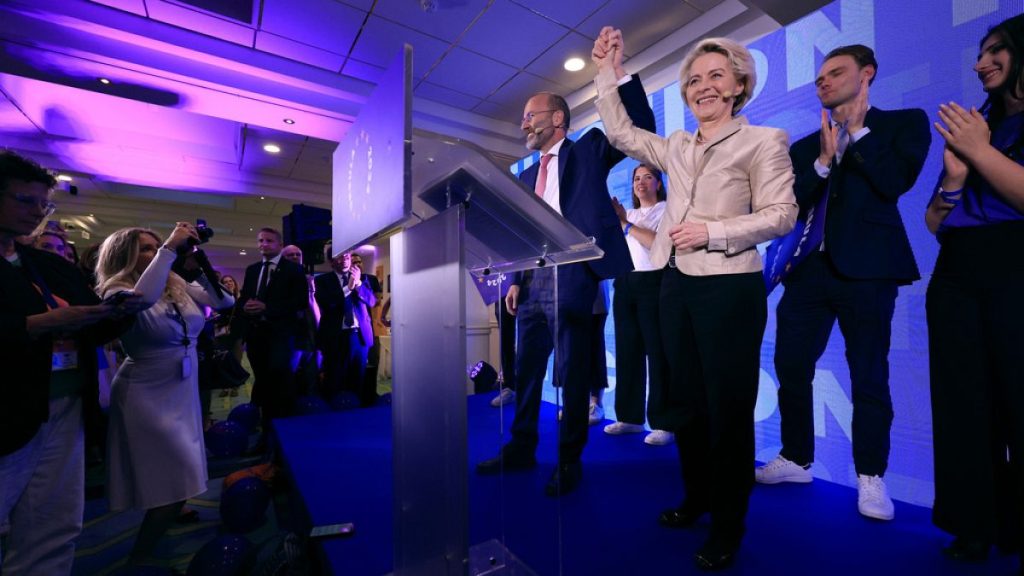The year 2024 witnessed a significant rightward shift in the European political landscape, marked by the rise of right-wing and far-right parties in both European parliamentary elections and national elections across several countries. This trend, according to political scientist Pascal Delwit, is not a fleeting phenomenon but the culmination of a two-decade-long build-up of radical right-wing sentiment. He attributes this rise to a growing sense of abandonment among voters who feel ignored by mainstream politics and harbor anxieties about immigration and its perceived impact on wages. This sentiment has allowed radical right-wing parties to tap into a wellspring of discontent, successfully mobilizing voters and gaining political traction.
The June 2024 European elections provided stark evidence of this shift. The centre-right European People’s Party (EPP) emerged as the largest group in the European Parliament, followed by the Social Democrats and, significantly, the far-right Patriots for Europe. This result effectively moved the political center of gravity to the right, with a majority of MEPs now occupying the right side of the hemicycle. The traditional “cordon sanitaire,” a strategy employed to isolate far-right parties, crumbled as the EPP, now positioned as a kingmaker, found itself potentially forming alliances with a range of parties, including those on the radical right. This signifies a normalization of far-right participation in mainstream European politics, a trend with potentially far-reaching consequences for the future of the European Union.
This rightward tide extended beyond the European Parliament and into national elections across several European countries. Austria saw the far-right FPÖ achieve its best result since World War II, while in Belgium, the conservative N-VA and the far-right Vlaams Belang made substantial gains, leading to protracted and as yet unsuccessful government formation talks. Portugal also experienced a shift to the right with the victory of the centre-right Democratic Alliance. Even in France, where the far-right National Rally (RN) achieved significant electoral success, the threat of a far-right takeover was only narrowly averted through a concerted effort by a coalition of left-wing and centrist parties. These national election outcomes mirror the broader European trend, illustrating the widespread appeal of right-wing populism.
While the left has experienced setbacks across the continent, they still hold power in several countries, including Denmark, Spain, Lithuania, Malta, Romania, Slovenia, and Slovakia. Romania presented a particularly interesting case where the left managed to win parliamentary elections despite a strong far-right showing. However, the presidential election was marred by allegations of Russian interference in support of a nationalist candidate, leading to its annulment. This highlights the complex and often fraught political landscape that characterizes Eastern Europe, where geopolitical factors and external interference can significantly impact elections.
The upcoming German elections, scheduled for early 2025 following the anticipated collapse of Chancellor Olaf Scholz’s coalition, represent a crucial moment for European politics. The outcome of these elections could significantly influence the direction of Europe, potentially further solidifying the rightward trend or offering a chance for the left to regain some lost ground. Germany, as the largest economy in Europe, holds substantial sway within the EU, and its political trajectory will have ripple effects across the continent. A strong showing by the right in Germany would likely embolden similar movements elsewhere and further solidify the right’s influence across Europe.
The resurgence of right-wing politics in Europe mirrors similar developments in other parts of the world, notably the United States. While the specific contexts and contributing factors vary, there are common threads linking these trends. The rise of populism, fueled by economic anxieties, concerns about immigration, and a perceived disconnect between the political elite and the electorate, has provided fertile ground for right-wing parties to flourish on both sides of the Atlantic. The challenge for traditional political parties will be to address the underlying grievances that have fueled this rise and offer viable solutions to regain the trust of disillusioned voters. The future of European politics will depend on how effectively they can respond to these challenges.














